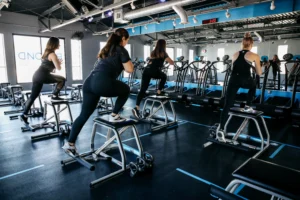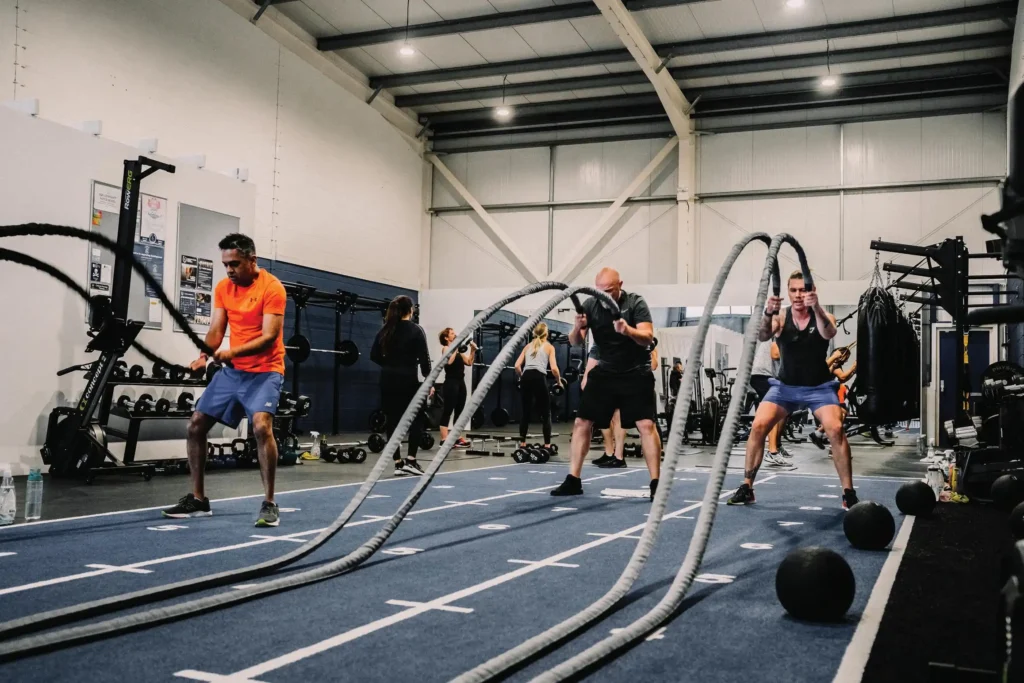Nigeria’s health and wellness sector is on the cusp of a technological transformation as the metaverse reshapes how people access fitness and healthcare services. Industry analysts now project that Nigeria’s metaverse health and fitness market will reach an estimated value of US $67.7 million in 2025, backed by a compound annual growth rate (CAGR) of 39.5% through 2030. This forecast places Nigeria among Africa’s most promising frontier markets for immersive wellness experiences powered by extended reality (XR), artificial intelligence (AI), and virtual platforms.
Virtual Fitness Platforms Redefine the Exercise Landscape
As consumer interest in home-based and tech-enabled fitness solutions grows, several Nigerian startups, wellness influencers, and global tech partners are embracing the metaverse to deliver innovative virtual experiences. These include 3D personal training sessions, interactive home workout avatars, VR-enabled yoga, AI-driven nutrition guidance, and real-time biometrics integration using wearable tech.
This digitized format offers broader accessibility—especially for Nigerians in remote or underserved areas where access to physical gyms and health centers remains limited. Through virtual reality (VR) headsets, augmented reality (AR) glasses, and mobile apps, users can now access highly personalized fitness journeys without leaving their homes.

Youthful Demographics and Smartphone Penetration Fuel Adoption
With Nigeria’s median age at just 18 years and mobile penetration surpassing 90%, the country provides fertile ground for tech-savvy, health-conscious consumers eager for next-gen wellness platforms. Urban millennials and Gen Z populations—accustomed to online gaming, social media, and video streaming—are rapidly embracing metaverse fitness as a natural extension of their digital lifestyles.
This is especially true in major cities like Lagos, Abuja, Port Harcourt, and Ibadan, where high-speed internet access, smart devices, and digital literacy are rising steadily.
Post-Pandemic Wellness Shifts Catalyze Virtual Health Solutions
The COVID-19 pandemic triggered a dramatic behavioral shift toward remote healthcare and digital wellness. Lockdowns disrupted traditional gym attendance and in-person training, prompting users to seek online alternatives. Even post-pandemic, many Nigerians have maintained virtual workout habits due to convenience, safety, and affordability.
In this context, the metaverse has become a strategic solution—allowing fitness enthusiasts to continue exercising while interacting with immersive content and community members in virtual worlds.
Corporate Interest and Investment on the Rise
Technology companies, fitness brands, and healthcare startups are investing heavily in the development of Nigerian metaverse fitness ecosystems. Some notable trends include:
-
Virtual gym startups offering AI-driven avatar coaches and real-time form corrections
-
Fitness influencer collaborations within metaverse spaces for branded workout experiences
-
Healthtech companies integrating telemedicine with wearable fitness trackers
-
International platforms customizing metaverse experiences for African markets
Moreover, venture capital firms and wellness tech investors are now eyeing Nigeria as a high-growth market, given its population size, digital enthusiasm, and rising health awareness.
Challenges: Infrastructure Gaps and Digital Equity Concerns
Despite the optimistic projections, Nigeria still faces considerable barriers to full-scale metaverse fitness adoption. These include inconsistent electricity supply, limited broadband access in rural areas, high costs of VR/AR gear, and digital skill gaps among older demographics.
To address these challenges, stakeholders are urging public-private partnerships focused on:
-
Expanding 5G infrastructure
-
Reducing costs of VR/AR devices through subsidies or local production
-
Enhancing digital literacy through nationwide training initiatives
-
Creating culturally relevant content in local languages
Government and Policy Implications
Nigeria’s government, through the Ministry of Communications, Digital Economy, and the Federal Ministry of Health, has a critical role to play in regulating the metaverse space, ensuring consumer protection, and fostering innovation. Policies that promote data privacy, ethical AI use, and equitable access could accelerate market development and safeguard public interest.
Additionally, institutions like the National Information Technology Development Agency (NITDA) and Nigerian Communications Commission (NCC) are beginning to explore frameworks that can support metaverse-related services in education, healthcare, and sports development.
Looking Ahead: Nigeria as Africa’s Virtual Fitness Trailblazer
If current trends continue, Nigeria may emerge as a leading African hub for metaverse health and fitness services by 2030. The combination of youthful demand, digital transformation, and market innovation provides a powerful growth trajectory for immersive wellness technologies.
The forecasted $67.7 million valuation by 2025 signals more than just economic potential—it reflects a growing national shift toward health, personalization, and futuristic engagement models. With continued investment and policy support, Nigeria could redefine how fitness is experienced, shared, and scaled in the digital age.







